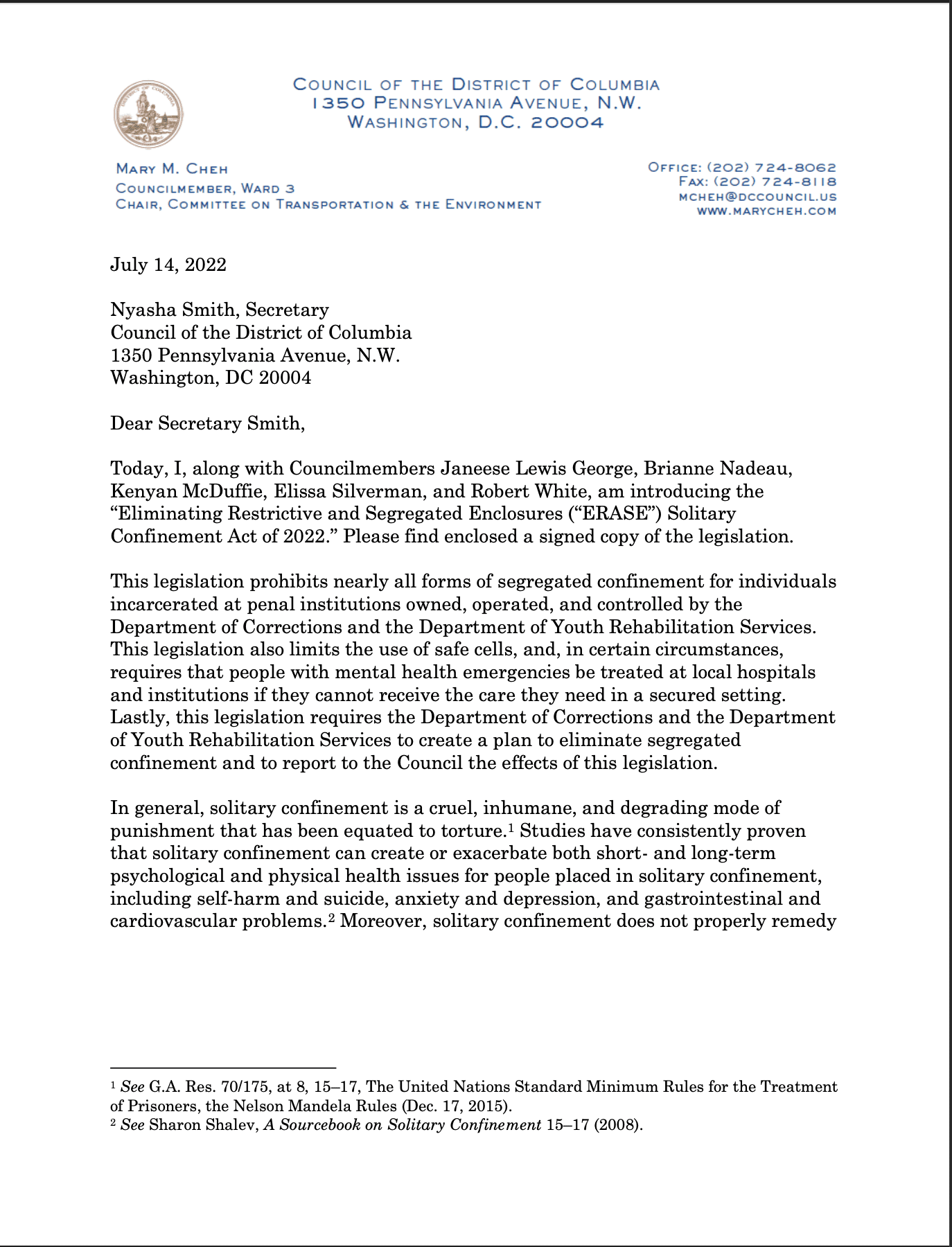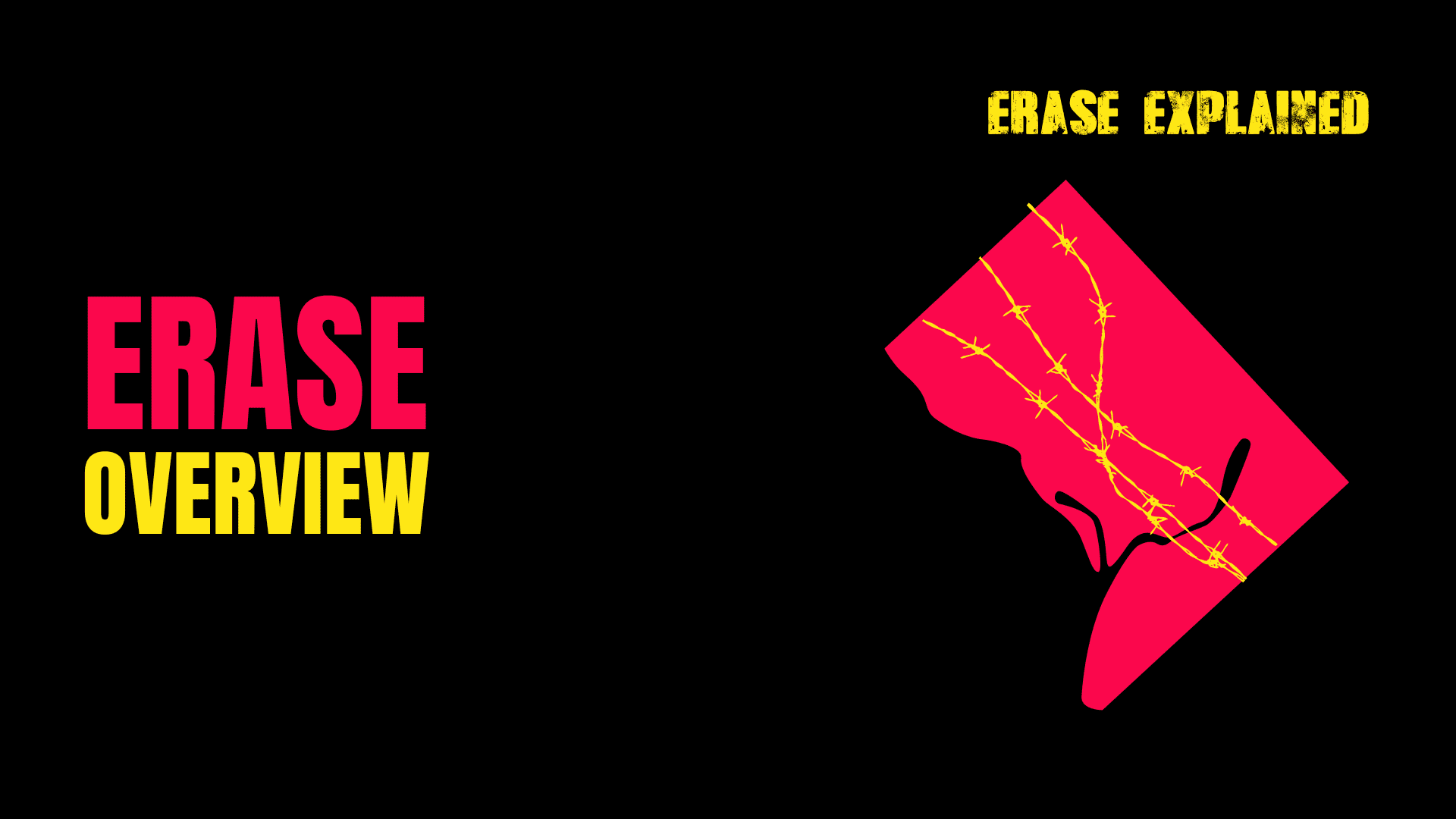INSIDE ERASE
In her introduction letter to the council, Councilmember Mary Cheh stated
Solitary confinement is a cruel, inhumane, and degrading mode of punishment that has been equated to torture. Studies have consistently proven that solitary confinement can create or exacerbate both short- and long-term psychological and physical health issues for people placed in solitary confinement, including self-harm and suicide, anxiety and depression, and gastrointestinal and cardiovascular problems. Moreover, solitary confinement does not properly remedy the root problems that lead to a person’s placement in solitary, and the economic costs of solitary far exceed any perceived benefits.
INSIDE THE BILL
Our bill addresses solitary confinement in all its forms, addresses the need for oversight, and ensures that a proper implementation plan is set for 2023.
Solitary confinement generally involves the placement of a person, alone or with a cellmate, in a locked room or cell for as long as 22 hours or more per day without meaningful access to human contact, often for almost any reason, with or without the person’s consent, and can occur in pretrial or post-conviction detention. Access to exercise, programming, and family visitation are either greatly curtailed or completely denied. People often receive food through a slot in the door and have “recreation” alone in an empty cage.[10]
The result of solitary confinement is severe human, social, and sensory deprivation. In turn, solitary confinement inflicts immense suffering and causes people to deteriorate mentally, physically, and socially. It causes psychosis, anxiety, depression, and heart disease, and too often leads to self-mutilation and death by suicide and other causes.
.[10]
30% of youth held in juvenile facilities report being held in solitary confinement for some period of time. In adult prisons and jails, young people are disproportionately locked in solitary. Because their brains are still developing the psychological effects are great and often irreversible. In addition, youth in solitary are kept from educational opportunities and the ability to develop social skills. According to experts, “young people are psychologically unable to handle solitary confinement…and the traumatic experience has a profound effect on their chance to rehabilitate and grow.” [12]








